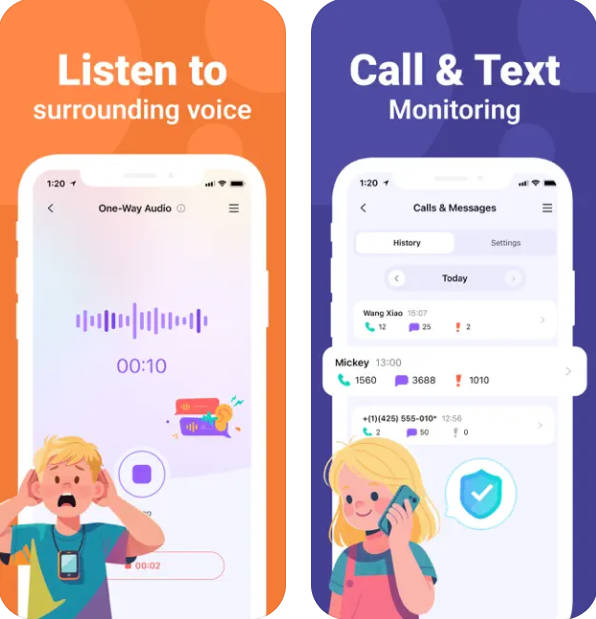Slang changes fast, and one word that keeps popping up in Gen Z conversations is “zesty.” While it originally described flavorful food or lively energy, the zesty slang meaning online has evolved. On TikTok, in DMs, and across meme culture, it can be a playful compliment—or a subtle jab—depending on context.
If you’ve wondered what does zesty mean in slang or how your teen uses it, this guide explains the dictionary sense, internet extensions, TikTok trends, and messaging examples. You’ll also find a parent-friendly playbook to respond with empathy and set clear expectations at home.

In This Article
- Part 1. What Does “Zesty” Really Mean?
- Part 2. Zesty Meaning on TikTok: How People Use It

- Part 3. What Does “Zesty” Mean in Text and Chat Messages?
- Part 4. Is “Zesty” a Compliment or an Insult?
- Part 5. Other Gen Z Slang Similar to “Zesty”
- Part 6. For Parents: How to Decode “Zesty” & Talk with Teens 🧭
Part 1. What Does “Zesty” Really Mean?
Dictionary Definition
Traditionally, “zesty” comes from “zest,” meaning liveliness, enthusiasm, or piquant flavor. In everyday English, a “zesty” dish tastes bold, and a “zesty” personality feels energetic and engaging. In this neutral sense, it’s a positive descriptor—spirited, vivid, and fun.
Internet Slang Extension
Online, the meaning of zesty slang expanded. Among Gen Z, “zesty” often describes dramatic, flamboyant, or over-the-top style and behavior. With friends, it can be affectionate—“That fit is zesty!”—but used by strangers, it may sound mocking, especially when it leans on stereotypes about masculinity. In short, tone + relationship + platform decide whether it lands as playful or hurtful.
Part 2. Zesty Meaning on TikTok: How People Use It
TikTok supercharged the phrase. Clips tagged with “zesty” typically show bold fashion, exaggerated posing, or high-energy dances. In many cases, creators use it as praise—vibrant, confident, entertaining. But “zesty” can also label an athlete’s movement or a public figure’s gesture in a way that implies ridicule. That’s why zesty meaning slang TikTok is a spectrum: from empowering self-expression to mean-spirited teasing.
Practical check: if the caption pairs “zesty” with supportive emojis (✨🔥🤝), it’s likely celebratory. If it’s paired with eye-rolls or sneers, the subtext can be belittling. Encourage teens to read the room—and to avoid tagging people in ways that punch down.
Part 3. What Does “Zesty” Mean in Text and Chat Messages?
In chats, context is everything. A few real-to-life examples:
- Example 1: “Your jacket is zesty 🔥” → friendly compliment about bold style.
Example 2: “Bro’s acting zesty rn 💅” → joking about dramatic behavior; tone depends on relationship and emojis.
Example 3: “That walk was… zesty.” → could be playful or mocking—watch the ellipsis and who’s speaking.
Tip for parents: don’t overreact to a single word. Ask what your child intended: “When you said ‘zesty,’ did you mean lively—or were you teasing?” That question opens a respectful conversation and teaches nuance.
Tip 💡
Judge the message by tone, emojis, and relationship. In close circles, “zesty” can be affectionate; from outsiders, it may feel like labeling.
Part 4. Is “Zesty” a Compliment or an Insult?
It can be both. As a compliment, it celebrates confidence and flair—“She brings a zesty vibe to every room.” As an insult, it targets mannerisms or style to belittle, often leaning on outdated gender stereotypes. Help teens reflect with two questions: “Would I say it to their face?” and “Would I be okay if someone said this about me online?” If either answer is no, skip it.
Part 5. Other Gen Z Slang Similar to “Zesty”
These terms appear near “zesty” in posts and comments. Use this chart to avoid mixing them up.
Part 6. For Parents: How to Decode “Zesty” & Talk with Teens 🧭
Lead with curiosity. Ask, “When you say ‘zesty,’ are you praising someone’s energy or teasing them?” That invites clarity without judgment. Explain that words can shift meaning across communities and that labeling people’s identity or expression can hurt.
For added support, FamiSafe provides Social Media Text Alerts when risky slang appears in chats, plus Screen Time and Web Filter to keep usage healthy. It’s not about spying; it’s about spotting problems early and starting better conversations.

- Social Media Texts & Slang Alerts
- Web Filter & SafeSearch
- Screen Time Limit & Schedule
- Works on Mac, Windows, Android, iOS, Kindle Fire, Chromebook
Conclusion
In 2025, the zesty slang meaning spans from energetic praise to teasing that leans on stereotypes. The difference is all about context. Encourage teens to consider intent, audience, and empathy before they post or comment. As a parent, you don’t need to memorize every term—you just need clear principles and the right tools.
With open dialogue and FamiSafe’s safety features, families can keep slang fun, inclusive, and healthy—online and off.
Try FamiSafe, Get Early Alerts on Risky Slang.
Frequently Asked Questions
-
Q1. Is calling someone “zesty” rude or offensive?
It depends on intent and relationship. Among friends, it can be playful; in public or toward strangers, it may come off as mocking or stereotyping. When in doubt, don’t use labels for people’s identity or expression. -
Q2. Where did the slang “zesty” come from?
It derives from “zest,” meaning energetic or flavorful. Online communities extended it to describe dramatic or flamboyant behaviors, with TikTok accelerating its spread in the early 2020s. -
Q3. What can parents do if kids use “zesty” as a label?
Start a calm conversation about tone and respect. If you’re worried about bullying or labeling, use FamiSafe’s social media text alerts to spot risky language early and coach teens on empathetic communication.


